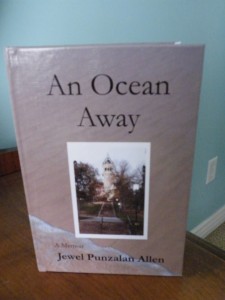A potential client told me the other day that she was in good shape with regards to her life story because she’s kept journals over the years and has a file full of notes from a personal history class.
I told her that was great, but that she should consider actually putting it all together into a book-form.
Don’t get me wrong. Journals are a fabulous window into one’s soul and life. Through Anne Frank’s diary, for example, we learn what it was like to grow up as a Jewish teen in Nazi Germany.
But journals have their limitations as a medium with which to share our life story. Here’s why:
1. The entries can be very personal, sometimes too personal to share. I may not be ready for my kids to read my journals until after I’m dead.
2. They aren’t succinct reading. I have a collection of journals in my basement. My first journal was a red 5-year diary that my parents gave me when I turned 12. I kept my calendars from college, which were very detailed so I suppose you could call them mini-journals. I also kept journals from my early married life. We’re talking about at least a dozen journals. Someday, I hope my kids will take time to read them all, but somehow, I doubt they’ll have that kind of time.
3. Memories aren’t well-organized. If you have a stack of journals , looking up entries from a certain time of your life will be time-consuming and challenging.
As for that shoebox file of memories, they’re fabulous, too, but unless there’s accompanying explanations, a future descendant would not be able to easily make heads or tails of each item’s significance.
I met with a gentleman today who brought out a stack of photo albums and scrapbooks to our initial consultation. After showing me bits and pieces of what he had, he gestured with his hands and said, “How can I organize all this?”
I can empathize with his frustration. Until I got my own memoir, “An Ocean Away,” published, my memories consisted of a binder of notes and scrap paper. Today, I have my college memories all in one book.
So I’m a passionate proponent of organizing your life story in book-form.
Through a physical book, in one location, you can put your story, your memorabilia, photos, and anything else you want your family to know about you. You can edit journal entries, expand on them, and make the stories come alive in a readable, accessible format.
By all means, keep writing in your journal and keep collecting those souvenirs. Then, when you’re ready to share your story with the world, put them all into a organized book that your family can enjoy.

